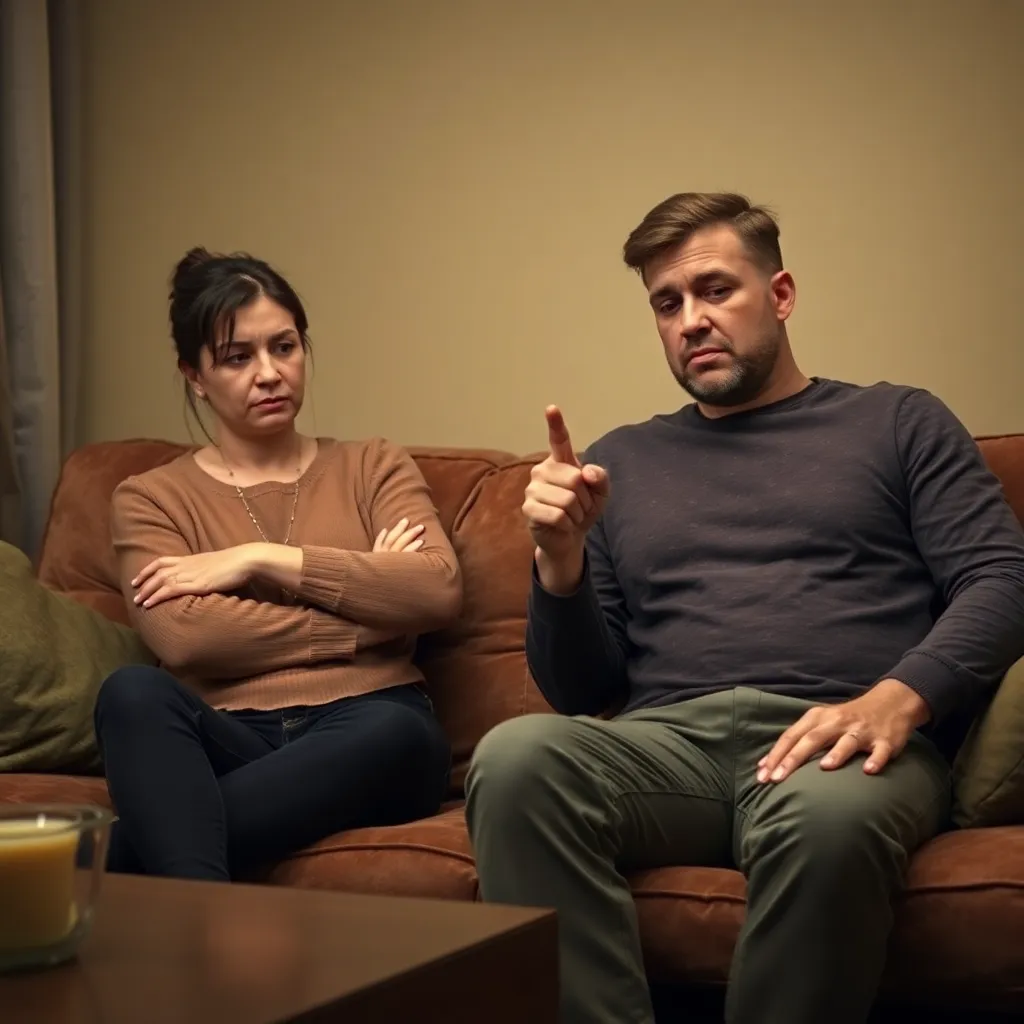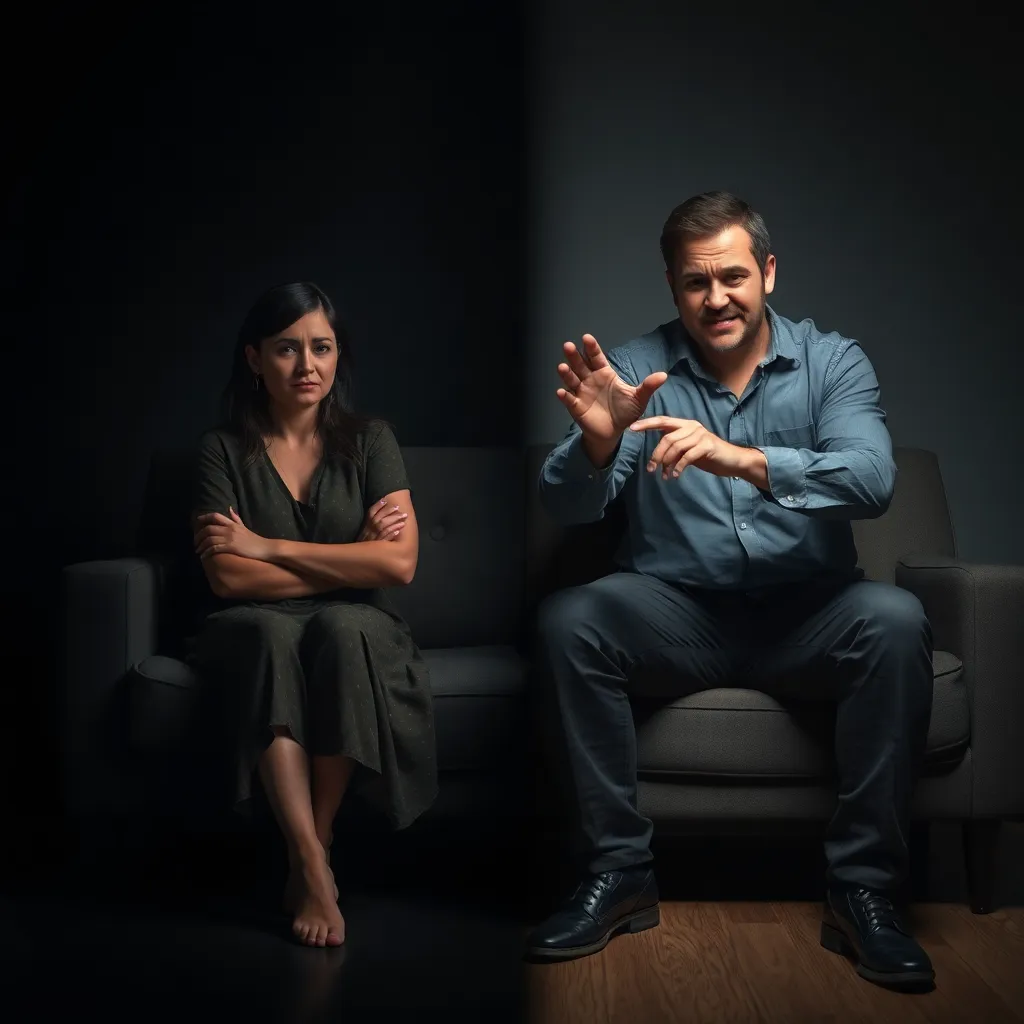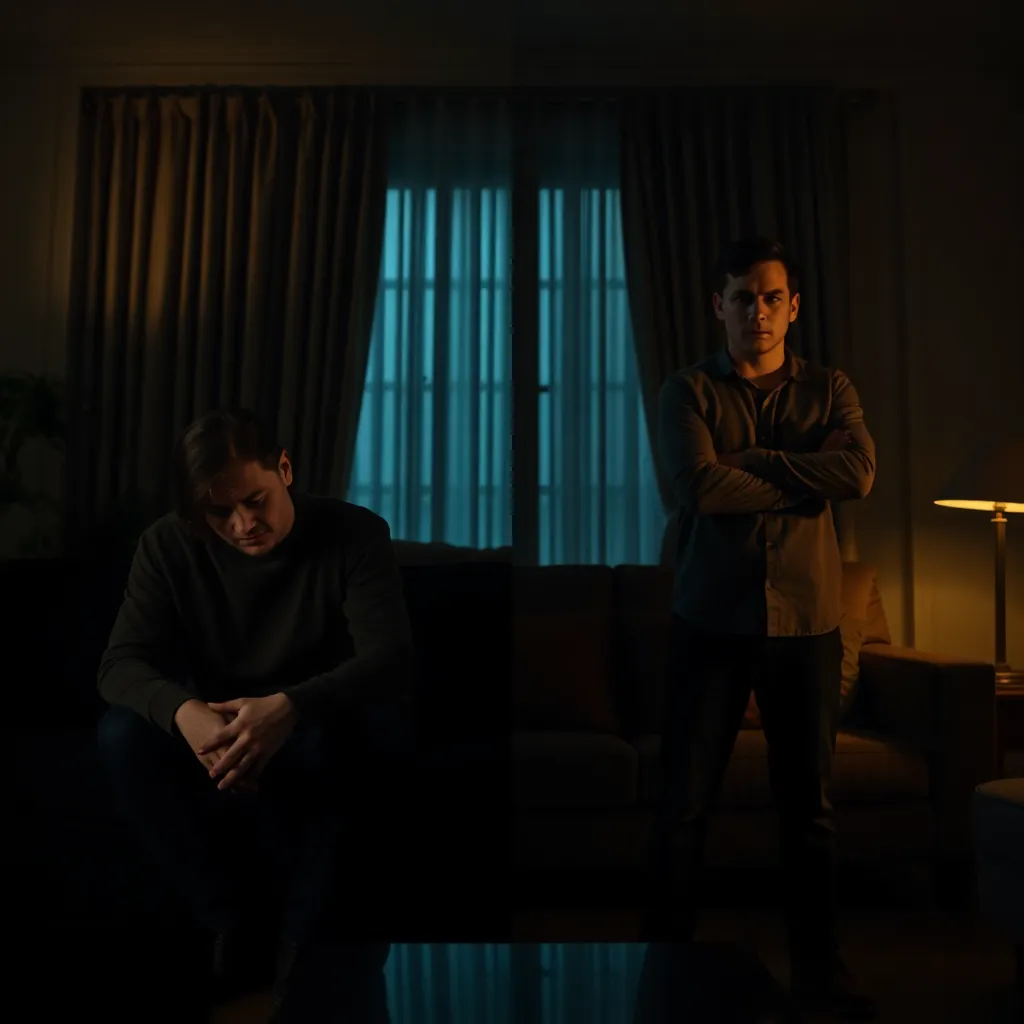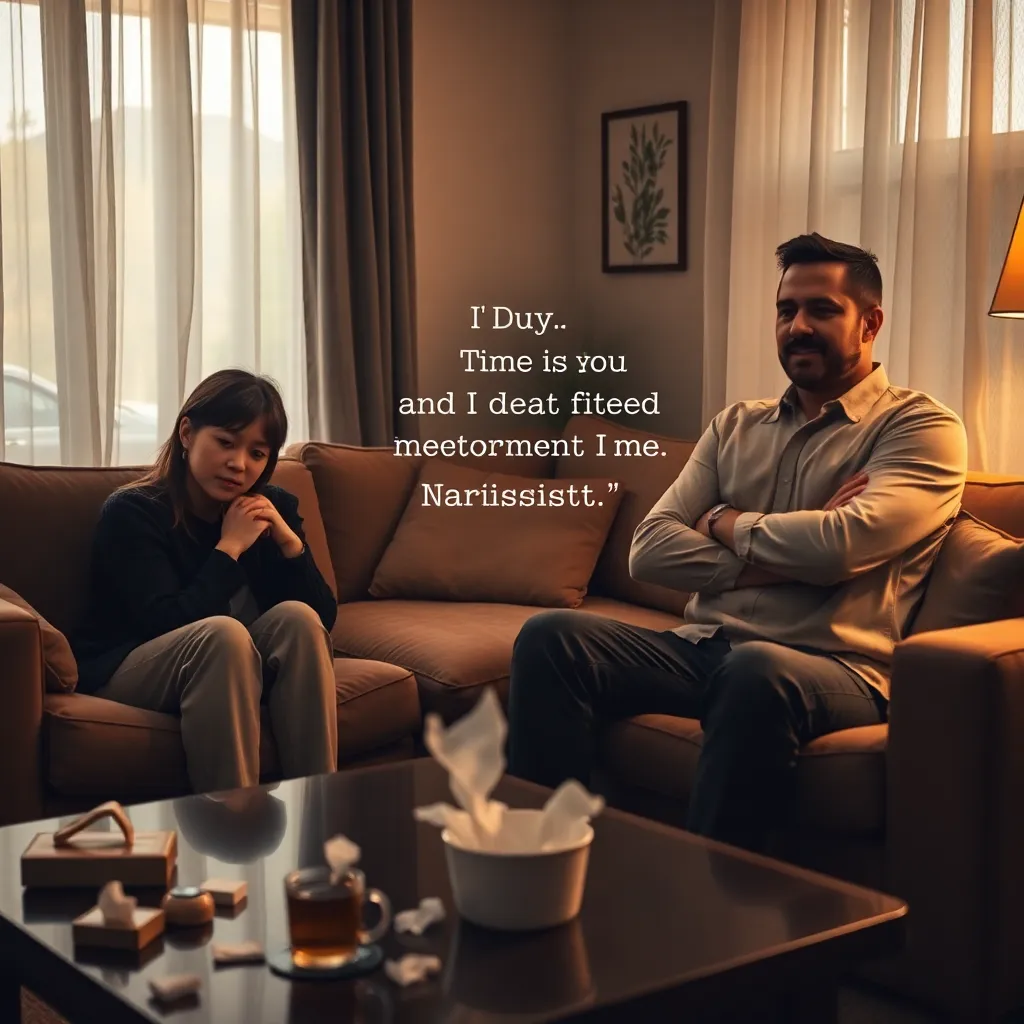Navigating relationships can be challenging, especially when they involve someone who seems to consistently present themselves as the victim. If you’ve ever found yourself bewildered by a partner, friend, or family member who always seems to turn situations around to gain sympathy, you’re not alone. Understanding why narcissists often play the victim card is crucial for anyone seeking clarity and peace in their personal interactions.
This topic holds significant importance because it helps demystify the behavior of narcissistic individuals, which can often feel confusing and hurtful. By exploring the reasons behind this tendency, you will gain insight into their mindset, which can be empowering and transformative for your own emotional well-being. Knowledge is a powerful tool, and understanding the dynamics at play can aid in setting healthy boundaries and finding compassion for yourself.
In this article, you’ll learn about the psychological mechanisms that drive narcissists to adopt the victim role and the impact this behavior can have on their relationships. We will delve into the complexities of narcissistic personality traits and how they manifest in everyday interactions. Armed with this understanding, you’ll be better equipped to navigate these relationships with empathy and resilience, ensuring you protect your emotional health while fostering more balanced and fulfilling connections.
1. Decoding Narcissistic Behavior Patterns

Understanding the behavior of a narcissist can be challenging, especially when they often play the victim. A key pattern to recognize is how they frequently shift the focus to themselves, often portraying themselves as the misunderstood or wronged party.
In many relationships, a narcissistic partner might twist situations to make their partner feel guilty or responsible for their feelings. This pattern of behavior is not just manipulative but can also be emotionally draining for the other person involved.
Imagine a scenario where a partner constantly blames their significant other for being insensitive, even in situations where they’ve caused the harm. This dynamic can create a cycle where the non-narcissistic partner feels obligated to apologize or make amends, perpetuating the imbalance in the relationship.
Experts suggest that narcissists use the victim role as a tool for control and sympathy. By playing the victim, they can deflect responsibility and manipulate others into meeting their needs.
Ultimately, recognizing these patterns is the first step in protecting yourself from emotional manipulation. With awareness, you can create healthier relationship dynamics by setting clear boundaries and addressing issues directly.
2. The Victim Card Strategy Explained

In many cases, understanding the victim card strategy starts with recognizing how it serves as a tool for narcissists to maintain their perceived position of superiority. By portraying themselves as the aggrieved party, they cleverly shift the focus away from their own behaviors and onto the supposed actions of others.
Narcissists often employ this tactic to elicit sympathy and avoid accountability for their actions. For instance, in a relationship conflict, they might frame themselves as misunderstood or wronged, even when they have clearly crossed boundaries.
This manipulation tactic can be especially confusing in romantic relationships, where emotional bonds are strong and often forgiving. A partner may find themselves constantly questioning their own perceptions and feelings, trying to make sense of the disconnect between the narcissist’s words and their actions.
Experts suggest that this behavior stems from a deep-seated need to protect their fragile self-esteem. By casting themselves as victims, narcissists can avoid facing the uncomfortable reality of their flaws and maintain a sense of control in the relationship.
Ultimately, recognizing this pattern is the first step towards breaking free from its manipulative cycle. By understanding the motives behind the victim card strategy, you can protect your emotional well-being and foster healthier relationship dynamics.
3. Psychological Motives Behind Victimhood

Understanding the psychological motives behind a narcissist’s victimhood can deepen your empathy and awareness. Often, the need to be seen as a victim stems from a profound sense of insecurity and the fear of being exposed or vulnerable. This behavior is frequently observed in relationships where the narcissist may feel threatened or challenged. For example, when a partner calls out their behavior, they might react by claiming to be misunderstood or mistreated.
Another psychological motive is the desire to maintain control over the narrative. By positioning themselves as the victim, narcissists can manipulate others’ perceptions, gaining sympathy and deflecting responsibility. Consider a scenario where a partner constantly blames outside forces for their mistakes, making it difficult to hold them accountable. This tactic can leave their partner feeling confused and questioning their own reality.
Experts suggest that this victimhood mentality might also be a defense mechanism to avoid facing internal guilt or shame. By externalizing blame, narcissists protect themselves from confronting their own flaws and shortcomings. In this way, they can continue to uphold their fragile self-image without having to engage in self-reflection or change. It’s important to recognize this pattern to protect your emotional well-being.
Recognizing these psychological motives can empower you to respond with greater compassion and understanding, while also safeguarding your own needs. It’s not about excusing their behavior but rather equipping yourself to navigate the complexities of such dynamics more effectively. By doing so, you can foster a healthier relationship environment, whether that means engaging more constructively or deciding to step back.
4. Impact on Relationships and Trust

When a narcissist often plays the victim card, it can severely erode the trust and stability in a relationship. Partners may feel confused and manipulated, as their genuine concerns and feelings are overshadowed by the narcissist’s constant need for validation and sympathy.
Over time, this behavior can lead to a significant breakdown in communication, leaving the non-narcissistic partner feeling isolated and unheard. In a real-world scenario, imagine a partner who always twists disagreements to make themselves appear as the wronged party, leaving their significant other frustrated and unheard.
An expert insight from Dr. Emily Sanders, a renowned psychologist, suggests that such dynamics often result in a loss of emotional intimacy. She emphasizes that acknowledging this pattern is crucial for any hope of healing and rebuilding trust.
To mitigate these effects, partners should practice setting clear boundaries and communicating their emotions assertively. This approach not only protects their emotional well-being but also discourages further manipulation.
Ultimately, recognizing these patterns and taking proactive steps can help restore a sense of balance and understanding within the relationship. The key takeaway is the importance of maintaining an open dialogue and seeking external support when necessary.
5. Recognizing and Responding Effectively

Recognizing when a narcissist is playing the victim card can be challenging, but key indicators include their tendency to avoid responsibility and shift blame. In a romantic relationship, this might manifest as constantly deflecting any fault during conflicts, making you feel like the problem-maker.
One effective way to respond is by setting clear boundaries and sticking to them firmly. For instance, if a partner frequently blames you for their mood swings, calmly assert that you will not engage in discussions that revolve around unfounded accusations.
Additionally, maintaining emotional distance when necessary can help you stay grounded and not get pulled into their narrative. You might find it useful to have a friend or therapist as a sounding board to validate your feelings and experiences, ensuring you don’t start doubting yourself.
Experts suggest practicing empathy without enabling harmful behavior, which means acknowledging their feelings while also advocating for your own needs. This approach is crucial in preserving your emotional well-being and strengthening your self-respect.
Ultimately, by recognizing these patterns and responding effectively, you can protect yourself from emotional manipulation. This empowers you to build healthier, more balanced relationships where trust and respect are mutual.
Conclusion: Creating Beautiful Outdoor Spaces
In navigating the complexities of relationships with narcissists, understanding the five key concepts we’ve explored is crucial. First, recognize the manipulation tactics that narcissists use to flip the script and play the victim. Second, identify the projection of their own insecurities onto others. Third, be aware of the blame-shifting that deflects accountability. Fourth, the emotional manipulation that keeps partners ensnared, and finally, the gaslighting that distorts reality and erodes self-confidence.
As a next step, start by setting firm boundaries and seeking support from trusted friends or professionals to regain clarity and strength. Remember, knowledge is power, and this article is a valuable resource in your relationship toolkit. Bookmark it now, and refer back whenever you need a refresher.
Looking forward, believe in your ability to cultivate healthy, fulfilling relationships. By arming yourself with awareness and taking proactive steps, you pave the way for more genuine connections built on mutual respect and understanding. Embrace the journey of growth and resilience, and let this newfound insight guide you towards a brighter relational future. Save this article as a beacon of guidance whenever you feel the need to revisit these empowering truths.
